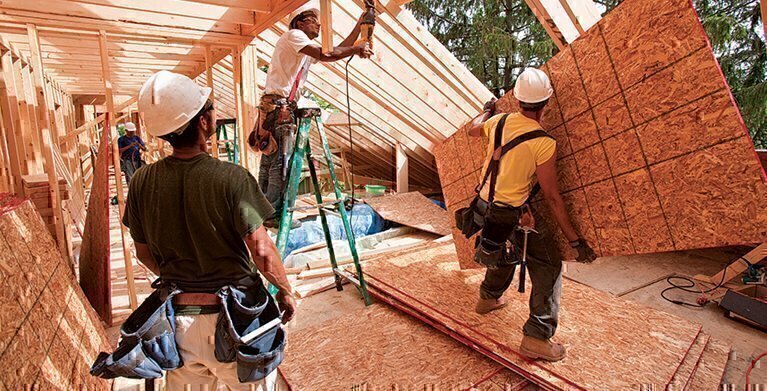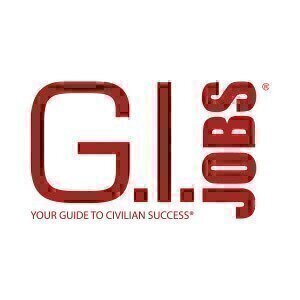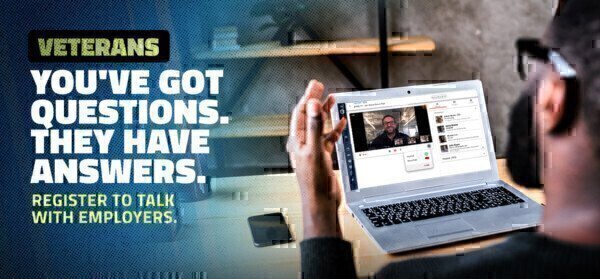SPONSORED CONTENT
Construction is an ebb and flow industry.
Right now, it’s flowing. Big time.
G.I. Jobs Virtual Career Expo
March 24, 2021, 12-4PM EST
Register now. Space is limited!
Find the Position You Want at the Virtual Career Expo
This Virtual Career Expo online chat will connect you directly with organizations from the comfort of your home, office, smartphone or tablet. Our online, cloud-based platform makes it easy and fun for you to participate. After signing in, you’ll be able to explore the available information and opportunities, and participate in 1-on-1 chats with representatives from participating organizations. Share your background and experience, and get all your questions answered. Among those in attendance will be our event sponsor, California Institute of Arts & Technology. Unable to attend an event in person? You can still submit your résumé to a specific event for all employers to review online.
Construction Jobs for Veterans
Two-thirds of the 1,459 construction contractors surveyed by the Associated General Contractors of America reported they were having a hard time filling hourly craft positions that represent the bulk of the construction workforce in the US.
“With the construction industry in most of the country now several years into a recovery, many firms have gone from worrying about not having enough work to not having enough workers,” said Stephen Sandherr, chief executive officer for the Associated General Contractors, in a statement. “These shortages have the potential to undermine broader economic growth by forcing contractors to slow scheduled work or choose not to bid on projects, thereby inflating the cost of construction.”
Contractors in the Midwest are feeling the pinch the most, with 77% of contractors reporting they’re having a hard time filling craft positions, followed closely by the South with 74%, 71% in the West and 57% in the Northeast.
With high demand and average annual salaries for craft professions ranging from just over $47,000 to almost $89,000, construction is an excellent choice for many veterans—for a lot of reasons.
“Beyond the fact that veterans have the mindset to focus on the job at hand and accomplish multiple missions in an orderly and timely fashion, service members are accustomed to traveling, working with their hands and working as a team,” says Jennifer Wilkerson, director of marketing, PR and Build Your Future for the National Center for Construction Education and Research (NCCER), a nonprofit advocacy group.
“Construction projects are structured in a way in which teamwork is a key factor in determining whether or not a job will finish on time and on budget,” Wilkerson says. “The military instills loyalty, hard work, reliability and cooperation, all of which employers are aware will enhance a company’s productivity and overall workforce.”
Veterans whose military training and experience don’t match craft positions can receive training through in-house programs, technical schools and industry training centers. However, Build Your Future’s Hard Hat Heroes military program released a task alignment that provides veterans and transitioning military with NCCER industry-recognized credentials for training they received while serving, Wilkerson said. “Having these industry-recognizable credentials allows employers to hire veterans at the correct level and continue their training from where they left off in the military. It gives veterans the opportunity to have their skills translated into terms the industry understands and the opportunity to start at a position that may not have been possible before,” she said.
Visit byf.org/military for more information.
Veteran Success Profiles
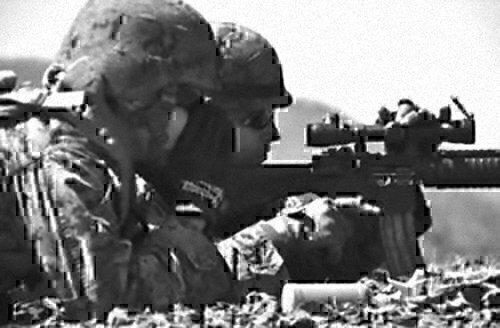
Corporal Nick Marine
Sales and Operations Coordinator, Herc Rentals, Clayton, N.C.
Age: 27
Military Service: Corporal (E-4), Marine Corps (2009–2013)
MOS: Anti-tank Missileman (0352)
OEF: Two combat tours (2010, 2011)
Did you pick the Marine Corps because of your name? I couldn’t very well join the Army or Air Force with a name like Marine. It wasn’t at the forefront of reasons, but I’d be lying if I said it didn’t play a part in my decision.
Did you have a career plan when you decided to leave the military? To be honest, I planned on doing some form of law enforcement. With more research into the field it seemed that I would be put in a spot similar to being in the military and wouldn’t have the time to devote to my family.
How did you find your job? I just posted my résumé online and got the call for a temp job on the yard. Two days after I started the temp job they found out I was a veteran and immediately offered me a permanent position.
What do you do at Herc Rentals? I am a sales and operations coordinator. At the base level I answer the phones and reserve equipment for rentals. I assist the sales staff with filling their orders and I dispatch our drivers for their daily routes.
How well did your military training and experience prepare you for your civilian career? Mentally it trained me well. I know how to handle stressful situations (though I have yet to meet a more stressful situation than being in Afghanistan). My job at Herc Rentals at its base is very similar to the military.
What advice would you give to transitioning service members specific to construction? I think a lot of people see construction as a job or maybe as something you shouldn’t strive for. I definitely thought that, but I have seen the other side of it now. If you are looking for a career in an industry that will always be needed and is always growing, then construction is the way to go.
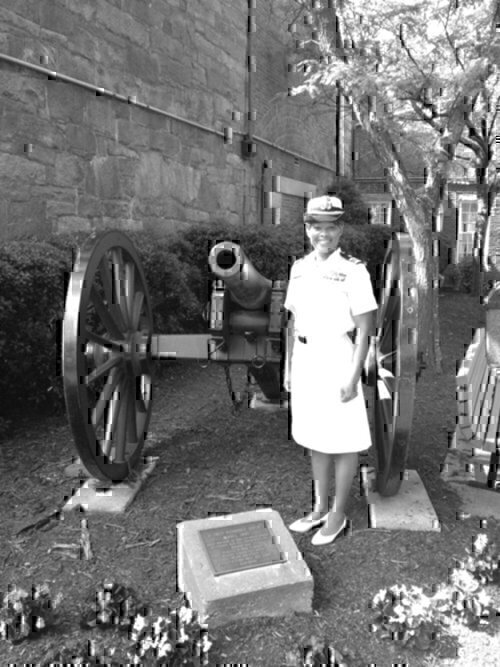
Lieutenant Commander Tawanna A. Gallassero
Quality Engineer II, CB&I, The Woodlands, Texas
Age: 45
Military Service: Lieutenant Commander (O-4), Navy (1988–2014)
Designation: Aviation Ordnance Officer (6360)
Education: Bachelor’s degree, psychology, Chapman University, 2000; Master’s degree, systems engineering and analysis, Naval Postgraduate School, 2005
OIF/OEF: Deployed in support of OIF/OEF aboard three aircraft carriers and made several carrier air wing detachments throughout naval career.
What do you do at CB&I? I’m the lead trainer for CB&I’s advanced welding information management system, which is an integrated suite of software for documentation and control of fabrication activities designed to manage production welds and welding projects.
What is your typical day like? I travel frequently to train and manage employees responsible for quality control. These employees provide support for engineering, procurement, fabrication and manufacturing, and construction at major energy infrastructure projects.
How did you get this job? I created a profile on CB&I’s career page and uploaded my résumé. After several interviews, I received an offer letter of employment.
How did you choose your civilian career path? My work experience in aviation ordnance and knowledge attained in weapons and small arms systems revolved around quality control and assurance, and health, safety and environmental procedural compliance. Attaining formal education in systems engineering also solidified my capabilities. Transitioning into the Quality Department at CB&I was a natural progression of my knowledge, skills and abilities.
What worked best in your job search? Attending networking/career events and word of mouth helped me with my job search. Perseverance also worked. Each day, my routine consisted of improving my résumé, tailoring it to the job I was targeting and improving my professional online profiles on sites such as LinkedIn.
Best advice for transitioning service members? My advice is to make a succinct plan and stick to it. Be sure to include your significant other in your decisions, because this journey will affect them too. You also should attain all the credentials that correlate to the civilian sector you want to enter, get your degree and invest the time needed prior to your retirement ceremony to ensure success after the military
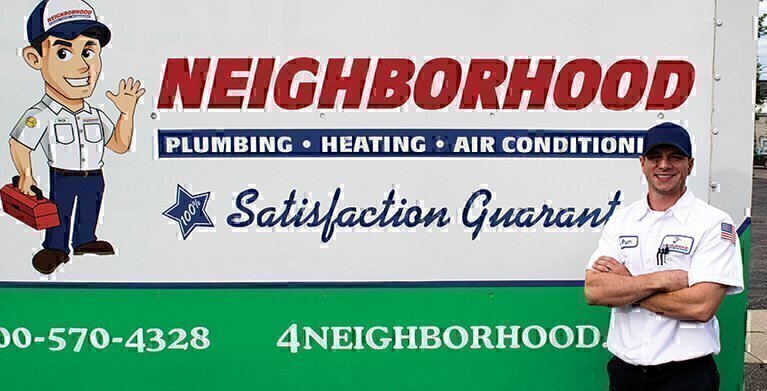
Working in the heating and cooling, plumbing and electrical (PHCE) trades is not only secure and well paying, it’s an in-demand career that you can take anywhere you go (or where your family goes). Just ask heating, ventilation and air conditioning (HVAC) technician Bryan Daleiden: He started learning his trade in the military, and has taken those skills from there to two different companies. When Daleiden was 19 years old, he joined the Army. His father owned an excavating company and he entered the Army with the intention of becoming a heavy equipment operator. After deciding against that because of the six-year commitment required, he decided on a MOS that would allow him to enter his grand uncle’s heating and air conditioning company at the end of his tour. This focus was a two-and-a-half-year commitment, which fit his time frame better.
He started to really warm up to the job while he was on his deployment. “It was rewarding to help other soldiers and civilians with warmth, or keep their food cool during that time,” he said.
It was this exposure that led him to the decision that he would continue to work in the heating and cooling trade after he left the Army.
As he transitioned out of the military, he searched for jobs in the community he wanted to live in, around Minneapolis and found one. He figured out how to get licensed in the state, and went from there. The company he found himself at was called Uptown Plumbing, Heating and Cooling, whose owner was formerly in the military.
At Uptown, Daleiden was able to grow his career. The owner, Josh Savage, knew about Troops to Trades, a scholarship program for veterans interested in a career in the trades. Daleiden applied for the Troops to Trades program and was given a training grant, which allowed him to attend a short-term training at the Ultimate Tech Academy in Little Rock, Ark. The training he received helped him advance into a service technician role.
“What might deter a lot of people [about this career] is that they don’t know a lot about it. They think you might need special requirements or licensing first,” he said. “But you don’t. Both companies I have worked for see potential in a person, and make sure you hit every step to be an installer or a service technician. You just have to be eager and willing to learn. The payoff is there if you’re willing to put in the work.”
Daleiden worked at Uptown for a while, but his wife was attending school in St. Cloud, Minn. (about an hour and a half from Minneapolis), and planned to continue in an RN program there. The two of them were interested in buying a house in that area as well, making a move imminent.
Looking for work near St. Cloud, Daleiden applied to a company he had originally applied to during his initial search out of the Army. They had not accepted him the first time because they were looking for someone with more experience. Now Daleiden was a perfect fit for Neighborhood Plumbing, Heating and Air Conditioning. As he transitioned to the new company, Daleiden was delighted to learn that Neighborhood was part of the same best practices organization for independent PHCE companies, called Nexstar Network, as was his first company, Uptown.
One thing that stood out to Daleiden about Neighborhood was that when he applied the second time, he saw many of the same faces as before. He knew this was a place where people wanted to stay. Taking his skills on the road from Minneapolis, Daleiden found in Neighborhood a smaller company with a family feel, good pay and steady work.
In his new position, Daleiden not only gets to serve others, he also gets a fresh experience with each new day.
“It’s a new ‘office’ every day; it’s something new,” Daleiden said. “You go to four or five homes, meet new people and get to know families on a personal level; it’s really rewarding. I’ve been doing it for 14 years and I’m still learning. I want to be that guy who knows everything. [In this career] there’s always room for advancement and new knowledge. It keeps your mind entertained.”
Daleiden is happy with his choice of careers in the residential service industry as an HVAC technician. Working in small- to mid-sized businesses creates a feeling of being part of a team, while still having your own goals to strive for. There are a lot of opportunities for growth within the industry and the work tends to be stable. The residential service industry is one of many different trade career paths individuals can choose from.
READ NEXT
$100k Security Contracting Jobs for Veterans
What You Need to Know About Other-Than-Honorable Discharge
5 Differences Between Army and Marine Corps Infantry
